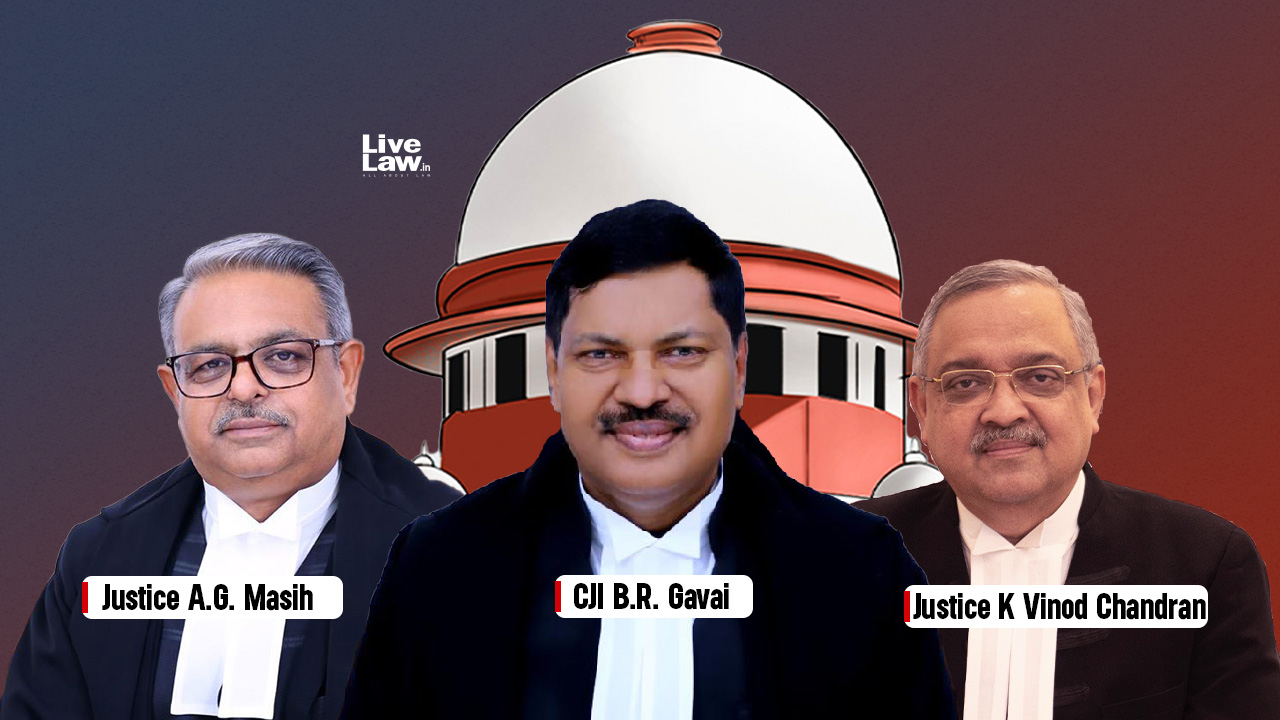Supreme Court Rules on Judicial Service: Fresh Law Graduates vs. Experience—Implications Revealed!
Supreme Court Verdict in All India Judges Association Case: A Critical Juncture for Judicial Appointments
In a landmark judgment announced by a bench consisting of Chief Justice of India BR Gavai, Justice AG Masih, and Justice K Vinod Chandran, the Supreme Court has addressed the contentious issue surrounding the requirement for judicial service candidates to have prior legal practice. This decision, encapsulating the balance between experience and the need for fresh talent, poses significant implications for the future of India’s judiciary.
Historical Context: The Evolving Landscape of Judicial Recruitment
Since the early 2000s, the conversation around who qualifies to join the ranks of judicial officers has undergone substantial changes. Initially, most states stipulated that only lawyers with a minimum of three years of practice could apply for judicial positions. This requirement, rooted in the belief that practical experience is crucial for effective judgment, was dramatically overhauled by the Supreme Court in 2002. The landmark judgment removed the minimum requirement, enabling fresh law graduates to compete for Munsiff-Magistrate posts.
However, the tides began to turn again—several applications were filed in the Supreme Court to reinstate the original condition. The resurgence of this debate reflects a broader concern regarding the competency and preparedness of newly minted lawyers entering the judicial service without prior advocacy experience.
Recent Developments and Court Considerations
The Supreme Court reserved its judgment on the controversial applications on January 28, 2025. Following the reservation, it stayed recruitment processes initiated by various High Courts, notably the Gujarat High Court, which had begun recruitment without reinstating the minimum practice condition.
Amicus Curiae Siddharth Bhatnagar expressed valid concerns regarding the implications of allowing fresh graduates into judicial roles without adequate practical experience. The bench acknowledged these worries yet deliberated over the effectiveness of the practice period, suggesting that many aspiring candidates may only fulfill the requirement in name, lacking true experience that could translate into judicial efficacy.
A consensus among the majority of High Courts emerged, favoring the idea that prior practice significantly enhances the efficiency and quality of judicial officers. Only the High Courts of Sikkim and Chhattisgarh have deviated from this majority opinion, suggesting that the mandatory requirement of three years of practice should not be reinstated.
The Supreme Court’s Historical Stance
In reviewing the judgments of the past, notably the 2002 ruling from the All India Judges Association case, it’s insightful to explore the Court’s acknowledgement of the changing dynamics in judicial service. The Court had previously pointed out that:
"In the All India Judges’s case [1993], this Court observed that in order to enter the Judicial Service, an applicant must be an Advocate of at least three years of standing… A bright young law graduate after three years of practice finds the Judicial Service not attractive enough."
The Court’s decision to permit fresh graduates to apply was partly influenced by recommendations from the Shetty Commission, which argued for the removal of the mandatory practice requirement to attract talent into the judiciary.
A Balancing Act: Fresh Talent vs. Experience
As the Supreme Court continues to grapple with these complex dynamics, the key questions remain:
- What is the ideal balance between fresh talent and seasoned experience in the judiciary?
- Is it possible for law graduates to transition into judicial roles effectively without a foundational period of practice?
Implications for Judicial Appointments
As the landscape of judicial appointments evolves, several potential outcomes could arise from this ongoing debate:
-
Enhanced Training Protocols: If the minimum practice requirement is upheld, it may prompt High Courts to establish or reinforce comprehensive training programs for new recruits to ensure they are adequately prepared.
-
Changing Public Perceptions: Reinstating the practice condition might shift public perception regarding the competence of judicial officers, fostering a belief that prior legal experience is critical in upholding justice.
- Talent Attraction and Retention: The judiciary must remain an attractive career path for upcoming law graduates. Balancing practical experience while ensuring court accessibility may yield innovative recruitment strategies that bolster judicial quality without compromising on the pipeline of new talent.
Conclusion: Looking Ahead for the Judiciary
The Supreme Court’s verdict in the All India Judges Association case calls for a thoughtful reevaluation of the qualifications required for judicial roles in India. As the judicial landscape continues to evolve, the critical task ahead is to ensure that justice remains served by qualified, competent individuals capable of navigating the complexities of law. The blend of fresh perspectives from recent graduates and the wisdom garnered through experience will be pivotal in shaping a robust and effective judiciary moving forward.




